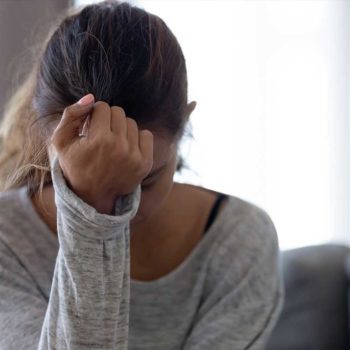7 Types of Anxiety & Depression
Anxiety and depression have a lot in common. Many times they are interlinked and similar treatments can be used.
Anxiety
It is quite common for depression and anxiety to occur together – in fact it happens 75 percent of the time – so, many psychiatrists address anxiety as a form of depression. Anxiety can result in panic attacks (and fear of having anxiety or panic attacks), heightened muscle tension (headaches, sore muscles, hand tremor), occurrences of heart pounding, nausea, or dizziness, constant pessimism, persistent fears or phobias, conflict avoidance, excessive fear of being judged or scrutinized by others, or even present as physical tics such as obsessive biting of fingernails or picking at skin.
Pure Depression
This can present as a constant mild sadness (dysthymia) all the way to crippling major depression – during which it is difficult to even get out of bed. Symptoms include persistent sad or negative mood, loss of interest in activities, restlessness, irritability, or excessive crying, feelings of guilt, worthlessness, helplessness, hopelessness, or pessimism. Depression patients may also sleep too much or too little, experience appetite changes and/or weight loss or weight gain, complain of physical ailments such as headaches, digestive problems, or chronic pain, or even experience thoughts of death or suicide (including actual suicide attempts). Depression may even include simple difficulty in concentrating, remembering, or making decisions and a constant feeling of being dissatisfied or bored.
Mixed Anxiety/Depression
This combination will bring on a mix of the symptoms for anxiety and depression.
Over focused Anxiety/Depression
Patients suffering from this issue have trouble shifting attention and therefore obsess on negative thoughts or behaviors, as well as anxiety. This is often the definition of obsessive-compulsive disorder. Other symptoms include phobias (irrational fears), eating disorders, posttraumatic stress disorder (PTSD), excessive or senseless worrying, anger when things do not happen as planned, tendency to oppose or argue, intense dislike for change, holding of grudges, inability to compromise.
Temporal Lobe Anxiety Depression
This condition occurs when there is too little or too much activity in the temporal lobes of the brain and includes symptoms of depression and anxiety, as well as having a short fuse or extreme irritability, rage, spaciness or confusion, visual or auditory changes (seeing shadows or hearing muffled sounds), and déjà vu.
Cyclic Anxiety/Depression
Sufferers of this type of depression experience short periods of excessive activity in the brain that sort of hijack the brain and take over the personality. Cyclical issues include bipolar disorder, cyclothymia, premenstrual tension syndrome, and panic attacks. Sufferers may also experience the symptoms of depression or anxiety as well as abnormally elevated, depressed, or anxious moods, disrupted sleep patterns, grandiose notions, ideas or plans, increased talking or pressured speech, racing thoughts, increased energy, poor judgment and risky behavior, inappropriate social behavior, irritability or aggression, and delusional or psychotic thinking.
Unfocused Anxiety/Depression
This type of depression effects the prefrontal cortex (PFC) in addition to high activity in the basal ganglia and/or deep limbic system and causes sufferers to have a hard time focusing or staying on task. This can be easily mistreated or diagnosed as ADD/ADHD. It includes symptoms of depression and anxiety, as well as trouble staying focused, spaciness, feeling overwhelmed, exhaustion, procrastination, chronic boredom, forgetfulness, unable to express feelings, a lack of empathy for others.





